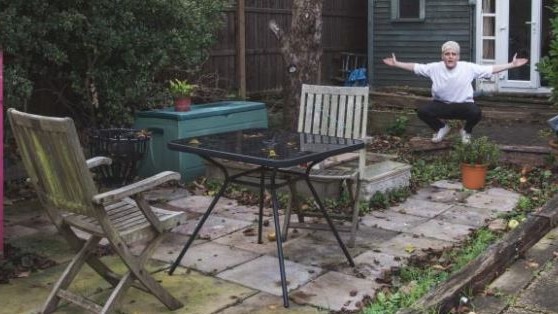Fake restaurant became TripAdvisor’s ‘best in London’
TripAdvisor was conned by a prankster who turned his backyard shed into London’s ‘No 1 restaurant’.

For a brief time the No 1 restaurant in London according to the TripAdvisor rankings was a small, obscure establishment south of the river that served homegrown food in an al fresco setting.
It had no Michelin stars and was run by a chef of whom no one had heard. But its admirers said the quality was “fantastic” and declared: “We will be back.”
It had one other outstanding feature: it did not actually exist.
Now the man who created a fake restaurant in his garden purely to hoax the travel website has described how he made The Shed at Dulwich into an internet hit even though no one had ever eaten there.
Eventually it became so popular that Oobah Butler did have to let people in. He served them ready meals from an Iceland supermarket.
Mr Butler, 26, who has a record of imaginative pranks on vice.com, said he got the idea from a previous job of writing fake reviews on TripAdvisor at £10 ($17) a go, praising restaurants in which he had never eaten.
Then he had a revelation, he said. “Within the current climate of misinformation and society’s willingness to believe absolute bullshit, maybe a fake restaurant is possible?
“It became my mission. With the help of fake reviews, mystique and nonsense, I was going to do it: turn my shed into London’s top-rated restaurant on TripAdvisor.”
He set up a website, came up with a concept to attract attention — dishes named after moods — and got a photographer to take pictures of the “food” (some of the supposed ingredients were bleach tablets and shaving foam dressed up to look appetising). To get round the problem of giving away his address, he said it was “appointment-only”. He then got his friends to write reviews, saying things such as: “The earthy taste and freshness of the food was something else.”
Gradually, The Shed’s rankings rose from 18,149 (“the worst restaurant in London”). The food writer and broadcaster Jay Rayner played a small part. He wrote on Twitter yesterday: “As I described it when they first got in touch, the second best shed-based eating experience, after my own, natch.”
Would-be customers started to phone Mr Butler on the mobile he bought specifically for the hoax. Panicking, he would respond: “Sorry, but we’re fully booked for the next six weeks” and end the call. Suppliers got in contact, even a PR agency.
On November 1, six months after he started the project, The Shed had reached the No 1 slot.
At that point Mr Butler decided he had no choice: he had to serve real customers.
He filled half the tables with people he knew, talking loudly about how delicious the food was, had a DJ play restaurant sounds and bought food from a supermarket. Diners had a choice between Truffle Mac n Cheese or Once-in-a-Lifetime Vegetable Lasagne.
One customer left looking furious: another said they wanted to come again. After a fortnight at the top, however, it had been knocked from its perch.
A spokesman for TripAdvisor, which has since deleted the listing, said: “Generally, the only people who create fake restaurant listings are journalists in misguided attempts to test us. As there is no incentive for anyone in the real world to create a fake restaurant it is not a problem we experience with our regular community — therefore this ‘test’ is not a real world example. “Most fraudsters are only interested in trying to manipulate the rankings of real businesses — so naturally that is what our content specialists are focused on catching.
“We use state-of-the-art technology to identify suspicious review patterns, based on modelling of what normal review behaviour looks like.
“Suspicious review activity on this listing page had been on our radar for some time. In fact, we had already applied a penalty to the property which reduced its position within our popularity ranking and removed a number of its reviews, prior to the listing itself being identified as fraudulent and removed from the site.
“From the moment our system identified a suspicious pattern of reviews, it was only a matter of time before we caught and shut down this listing.”
The Times


